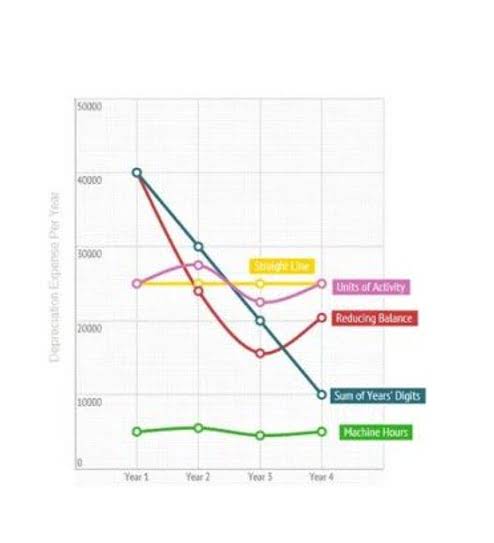Content

You can start a free trial with 10 transaction synchronizations into your accounting platform. On the website, you also have the opportunity to register for a demo so that you can see how the software works and ask our experts any questions. This one is mostly about providing financial and business-crucial statistics about all business processes.
- Managerial accounting involves the processes used to collect and track a company’s financial data.
- Financial accounting and managerial accounting are two of the four largest branches of the accounting discipline (e.g. tax accounting and auditing are others).
- There are a number of differences between financial and managerial accounting, which are noted below.
- This means that they need to be up-to-date with all the latest changes in financial reporting standards.
- But for the last few years, the comparison between Financial Accounting Vs Managerial Accounting has always been a topic of discussion in the business industry.
In managerial accounting, reports can be made daily, weekly, or monthly. The reports are very important because they can be used to predict the future outlook of the company, especially the company’s financial statement. Both professions are about counting money, but there is a big difference between managerial accounting and financial accounting. Accounting inside a company or the organization is called managerial accounting, while accounting outside of a company or an organization is called financial accounting. Financial accountants use generally accepted accounting principles when preparing financial statements.
Managerial vs. Financial Accounting
Not having a firm grasp on cash flow is one of the riskiest things a business can do, but some simple managerial accounting practices can help alleviate those risks. Let’s look next at a few examples of managerial accounting in action and how businesses might use managerial accounting to help them through the decision-making process. The numbers and reports generated are not meant to be shown to anyone outside the organization.
In contrast, financial accounting reports are highly regulated, especially the income statement, balance sheet, and cash flow statement. Financial accounting has some internal uses as well, but it is much more concerned with informing those outside of a company. The final accounts or financial statements produced through financial accounting are designed to disclose the firm’s business performance and financial health. If managerial accounting is created for a company’s management, financial accounting is created for its investors, creditors, and industry regulators. Financial accountants produce documents such as income statements and balance sheets, which external parties use. The statements document an organization’s financial performance over a period of time, as well as its overall financial health.
Does Managerial Accounting Follow GAAP?
They are, instead, an incredibly accurate historical record of a very specific time in your business’ life. Anything to do with a company’s finances is valuable information, and it’s important that it’s right. The stakes are simply higher when financial accounting vs managerial accounting people outside the company are taking a look at the books, so bending the rules of accounting slightly is occasionally forgiven under managerial accounting. Managerial accounting, on the other hand, analyzes the work within the company.
For instance, generally accepted accounting principles provide standards on how U.S. companies should prepare and report financial statements. If you’re an investor and reviewing several different companies, GAAP provides some assurance you’re comparing apples to apples. Because managerial accounting is intended only for an internal audience of managers and decision-makers, the rules are less strict. Corporate finance arms organizations with essential financial data that helps them compete in an increasingly competitive marketplace. Managerial accounting uses this data to help develop processes around internal decision-making, financial planning and budgeting.
Absorbed Cost vs. Full Cost
For income statements, each line item represents a percentage of gross sales. Financial statements are due at the end of an accounting period, while managerial reports may be issued more frequently, to provide managers with relevant information they can act on immediately. A business’ profitability and efficiency are reported through financial accounting. Managerial accounting reports on what is causing a problem and how to fix that problem. The following categories also show the differences between financial and managerial accounting. An accounts receivable aging reports is a great example of managerial accounting at work. It looks at all outstandingaccounts receivable, or money that you expect to come in to the business, and categorizes them based on how long they’ve been outstanding.

They should also design their managerial accounting reports in a way that makes it easy for managers to understand and use the information therein. Learn about the differences and similarities between financial accounting and managerial accounting.
What is managerial accounting?
They work internally to meet the needs of clients, customers, or other outside entities that do not work directly with the company but can affect or be affected by the business or projects. Typical responsibilities in this type of accounting can include gathering and maintaining historical data to create reports such as income statements, cash flow statements and balance sheets. As mentioned above, financial accounting must adhere to the rules set by the FASB, SEC and other industry partners to remain compliant. This is because the statements produced by financial accountants are circulated both internally and externally. Income statements, balance sheets and cash-flow statements are highly regulated and uniformly generated by public companies to benefit regulators, investors and the general public. Failing to uphold GAAP can lead to serious financial and legal ramifications, which is why financial statements of public companies must be audited by certified public accountants. Since external users rely on financial accounting reports, there are many important rules and regulations that must be followed to create these reports.
Therefore, managerial accountants must be knowledgeable concerning financial accounting and reporting. The main difference between financial and managerial accounting is that financial accounting is concerned with financial statements. Management accounting predates financial accounting and was introduced at the end of the 1800s. It provided only the essential information needed to manage production of early products like steel and textile. At the time, there weren’t shareholders and unsecured debt, so there was not a significant need for precise and extensive reports. In the early 1900s, accounting requirements standardized with the growth of credit, governmental regulation and taxes. Companies were required to provide financial reports to these outside entities, who wanted to keep tabs on money made.
Financial vs. Managerial Accounting
Financial accounting statements are prepared in accordance with GAAP or IFRS standards, while managerial accounting statements are not subject to these same standards. Financial accounting focuses on past transactions and managerial accounting provides information that can be used to make future decisions. Managerial accounting differs from financial accounting because the intended purpose of managerial accounting is to assist users internal to the company in making well-informed business decisions. The University of North Dakota’s online Master of Accountancy program can provide prospective students with the necessary skills to take on the challenges of a dynamic field. Discover more about how the University of North Dakota’s online Master of Accountancy can prepare students for success in their careers. Both financial accountants and managerial accountants typically have at least a bachelor’s degree in an accounting-related discipline. For success in specialized roles, they need to develop additional skill sets.

Managerial accountants also follow economic trends and make recommendations based on their observations. They may be involved in developing risk management strategies as well. Additionally, they may be called upon to supervise others linked to a company’s financial strategies, such as bookkeepers. Financial https://www.bookstime.com/ accounting involves reports of transactions that have already occurred, which means this type of accounting focuses solely on past events. Management accounting often includes forecasts of what may happen after taking different courses of action, giving this type of accounting a focus on the future.
If every business plays by the same basic rules, these external users can look at an income statement or balance sheet and get the financial information they need. Financial accounting is significant in informing investors, tax professionals and creditors of a company’s performance over a period of time, shedding valuable light on the past and present.
These documents are objective, factual and are not strictly internal documents. Unlike managerial accounting–which follows internally created rules and processes–financial accounting activities and processes must follow the Generally Accepted Accounting Principles . Securities and Exchange Commission, GAAP are the accounting standards, conventions and rules companies use to measure their financial results including net income and how companies record assets and liabilities. Financial statements are prepared as per Schedule III of the Companies Act, 2013.
No comment yet, add your voice below!